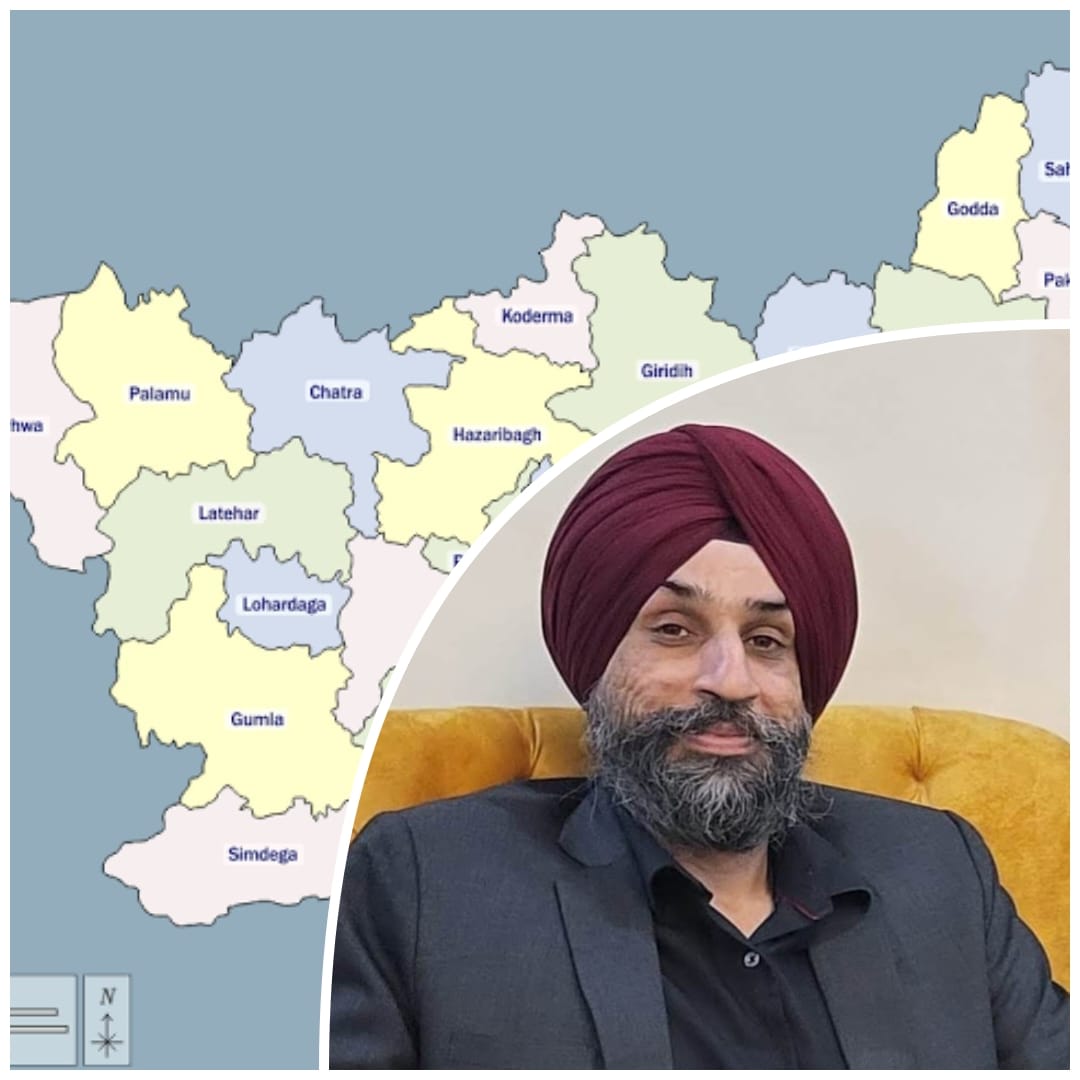Arvinder Singh Deol, Writer
Resilience in Adversity: Jharkhand’s Stand Against Central Power Dynamics
Overview:
The federal structure of India is a fundamental aspect of its democratic system, strategically established to guarantee the separation of powers and responsibilities between the central government and state governments. Nevertheless, the delicate equilibrium has faced challenges in recent times, notably in states under the governance of political parties other than the dominant group at the national level. Jharkhand, a state characterized by abundant natural resources and cultural variety, has emerged as a site of contention wherein the consolidation of authority by the Bharatiya Janata Party (BJP) has come into conflict with the state’s inherent entitlement to self-governance. Notwithstanding these difficulties, the administration of Jharkhand has demonstrated exceptional fortitude, remaining steadfast in the midst of hardship, and continues to garner the unwavering backing of its citizens who anticipate their leaders to safeguard their concerns.
The Federal Structure of India: An Analysis
The federal system in India is structured to establish a condition of equilibrium wherein the central and state governments function autonomously within their respective domains of jurisdiction. This approach facilitates the preservation of states’ autonomy in the management of their internal affairs, while also enabling their contribution to the sphere of national governance. Throughout history, this particular structure has facilitated India in upholding its unity while simultaneously acknowledging and valuing the diversity of its various areas. Nonetheless, the interplay between the central government and the individual states has not consistently been seamless, since it has been marked by recurring conflicts, particularly in instances of political realignment.
BJP’s Impact and Initiatives at the National Level:
The Bharatiya Janata Party (BJP), subsequent to assuming power at the national level, has frequently faced allegations of compromising the equilibrium of federalism. By employing many strategies, such as leveraging central agencies, the Bharatiya Janata Party (BJP) has been perceived as endeavoring to undermine state administrations that are under the leadership of opposition parties. Jharkhand, under the governance of the Jharkhand Mukti Morcha (JMM) in collaboration with the Indian National Congress, has been singled out as a primary objective. The activities undertaken by the federal government, including the withholding of funding, the utilization of investigative agencies to target state officials, and purported endeavors to orchestrate defections, have collectively been perceived as maneuvers aimed at destabilizing the government of Jharkhand.
Jharkhand’s Resilience: An Analysis
Notwithstanding these external constraints, the government of Jharkhand, under the leadership of Chief Minister Hemant Soren, has demonstrated remarkable resilience. Thus, Soren’s leadership has been characterized by a resolute opposition to the excessive authority of the central government. The state has initiated legal proceedings to address its issues, effectively contesting the decisions made by the central government, and steadfastly declined to yield to external pressures. The observed tenacity of Jharkhand is not solely attributable to political determination, but rather stems from the unwavering backing of its populace, who possess a robust sense of identity and self-governance. The populace has united in support of its elected officials, firmly opposing any endeavors aimed at subverting their mandated administration.
Public Expectations of Government:
The residents of Jharkhand possess distinct expectations from their governing authorities. Their objective is to pursue development that acknowledges and values their distinct cultural and environmental circumstances. These programs encompass sustainable development goals that aim to generate employment opportunities while minimizing the exploitation of the state’s abundant natural resources. Furthermore, there is a prominent need for the safeguarding of tribal rights, which hold significant importance in shaping the state’s character. Furthermore, there is an increasing demand for transparency and accountability in the realm of government. The residents of Jharkhand express a desire for a government that possesses both resilience and responsiveness to their individual needs, while simultaneously preserving the fundamental ideals of justice and equity.
In conclusion:
The resistance mounted by Jharkhand against excessive central authority serves as a monument to the tenacity of its governing body and the determination of its populace. As the state persists in addressing these issues, it continues to serve as a symbol of optimism for other governments encountering comparable constraints. The future trajectory of Jharkhand’s political landscape will undeniably be influenced by its capacity to sustain its resilience while simultaneously addressing the desires of its populace. Given the current circumstances, the position taken by the state serves as a poignant reminder of the significance of federalism in safeguarding the multifaceted nature and cohesion of India.
An Appeal for Action:
As members of society, it is imperative to be well-informed and actively involved in these political affairs. Please provide your insights regarding the political landscape in Jharkhand and its wider implications for the federal polity of India in the comments section below. Your voice plays a crucial role in influencing the trajectory of our democracy.




